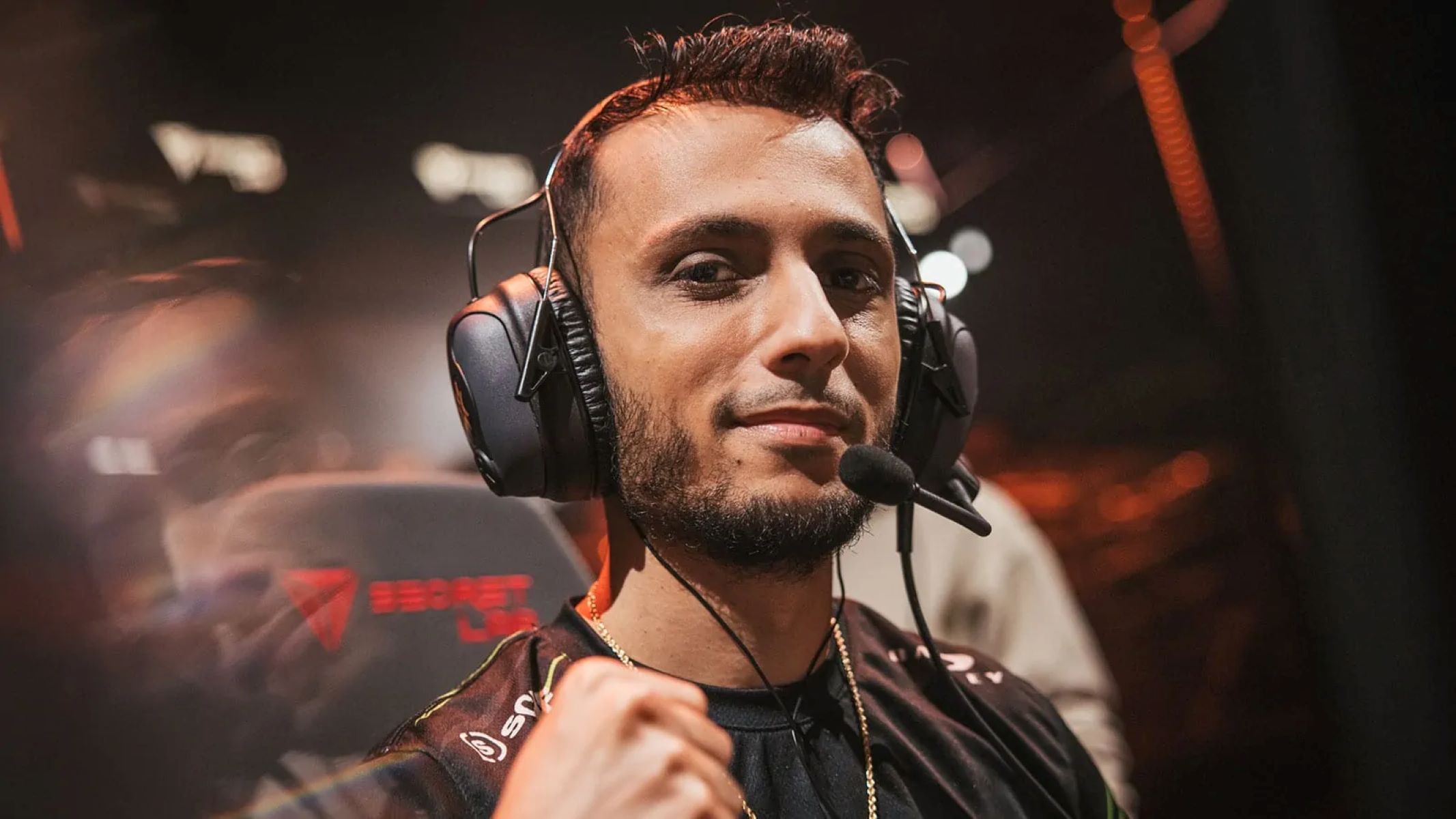Home>Sports>The Ultimate Guide To IGL In ESports: Unleash Your Inner Leader!


Sports
The Ultimate Guide To IGL In ESports: Unleash Your Inner Leader!
Modified: April 1, 2024
Unleash your leadership potential in the world of eSports with our comprehensive guide to IGL strategies and tactics. Elevate your sports gaming skills and dominate the competition as a true leader!
(Many of the links in this article redirect to a specific reviewed product. Your purchase of these products through affiliate links helps to generate commission for Regretless.com, at no extra cost. Learn more)
Table of Contents
Introduction
In the fast-paced world of eSports, where split-second decisions can determine victory or defeat, the role of the In-Game Leader (IGL) is pivotal. An IGL is not just a player; they are the strategic mastermind, the motivator, and the communicator who steers their team to success. Their influence extends beyond individual performance, shaping the entire team's dynamics and gameplay.
As the eSports industry continues to surge in popularity and competitiveness, the demand for exceptional IGLs has never been higher. Whether it's in the intense arena of first-person shooters, the intricate strategies of real-time strategy games, or the precision teamwork of multiplayer online battle arenas (MOBAs), the IGL's impact reverberates across various gaming genres.
The Ultimate Guide to IGL in eSports will delve into the intricacies of this crucial role, providing insights into the qualities, skills, and strategies that define a successful IGL. From understanding the fundamental responsibilities of an IGL to mastering the art of decision-making under pressure, this guide aims to equip aspiring leaders with the knowledge and inspiration to unleash their inner leadership potential.
Join us on this journey as we explore the multifaceted world of IGL in eSports, uncovering the secrets of effective leadership, teamwork, and strategic prowess that are essential for triumph on the digital battlefield. Whether you're a seasoned player looking to transition into a leadership role or a newcomer eager to grasp the fundamentals, this guide is designed to empower you with the tools to elevate your game and lead your team to victory.
What is an In-Game Leader (IGL)?
In the realm of eSports, an In-Game Leader (IGL) holds a position of immense significance, transcending the traditional boundaries of a player's role. The IGL is the linchpin of the team, the strategic architect who navigates the complexities of the game while orchestrating the collective efforts of their teammates. Beyond individual skill, the IGL's influence permeates every facet of the team's performance, fostering cohesion, adaptability, and resilience in the face of formidable opponents.
At its core, the role of an IGL revolves around making critical decisions in real-time, shaping the team's tactics, and maintaining a clear, cohesive vision amidst the chaos of gameplay. The IGL is the conduit through which strategies are communicated, adjustments are made, and morale is bolstered, serving as a beacon of guidance and inspiration for their teammates.
An IGL possesses a profound understanding of the game's intricacies, from map knowledge to opponent analysis, and leverages this expertise to formulate and adapt strategies on the fly. They exhibit exceptional game sense, anticipating their adversaries' moves and devising counter-strategies to outmaneuver them. Moreover, the IGL's leadership extends beyond tactical acumen; they are adept at fostering a positive team dynamic, nurturing a supportive environment where each member's strengths are maximized, and weaknesses are mitigated.
In the heat of competition, the IGL remains composed, making split-second decisions that can tip the scales in their team's favor. Their ability to analyze evolving situations, assess risks, and rally their teammates under pressure is instrumental in achieving victory. Furthermore, the IGL serves as the primary communicator, relaying vital information, coordinating movements, and maintaining team morale, all while maintaining a laser focus on the overarching strategic objectives.
In essence, an In-Game Leader embodies a unique blend of strategic prowess, emotional intelligence, and unwavering composure, elevating the team's performance through their leadership. Their impact reverberates far beyond the confines of the virtual battlefield, shaping the team's identity and fostering a culture of resilience, adaptability, and unwavering determination.
As we delve deeper into the intricacies of the IGL's role, we will unravel the qualities, skills, and strategies that define a successful leader in eSports, empowering aspiring IGLs to harness their innate potential and lead their teams to triumph.
The Role of an IGL in eSports
In the realm of eSports, an In-Game Leader (IGL) assumes a multifaceted role that transcends conventional gameplay responsibilities. The IGL serves as the linchpin of the team, orchestrating strategic maneuvers, fostering cohesive teamwork, and navigating the complexities of the game with astute decision-making. Their influence extends beyond individual performance, permeating the team's dynamics and gameplay approach.
At the heart of the IGL's role lies the ability to make split-second decisions that can sway the course of a match. They possess an acute understanding of the game's mechanics, map layouts, and opponent strategies, enabling them to devise and adapt tactics on the fly. This strategic acumen allows the IGL to anticipate the opposing team's moves, formulate counter-strategies, and guide their teammates with precision, all while maintaining composure under intense pressure.
Furthermore, the IGL serves as the primary communicator, relaying critical information, coordinating team movements, and bolstering morale during pivotal moments. Their adeptness at fostering effective communication channels ensures that the team operates cohesively, swiftly adapting to evolving game dynamics and seizing strategic opportunities.
Beyond their tactical prowess, an effective IGL embodies strong leadership qualities, cultivating a positive team dynamic where each member's strengths are maximized, and weaknesses are mitigated. They inspire and motivate their teammates, instilling confidence and resilience in the face of adversity. This leadership extends to fostering a culture of adaptability and continuous improvement, where the team evolves collectively to overcome challenges and achieve success.
In essence, the role of an IGL in eSports is multifaceted, encompassing strategic leadership, effective communication, and the ability to make decisive, game-changing choices. Their impact extends far beyond the virtual battlefield, shaping the team's identity and fostering a culture of resilience, adaptability, and unwavering determination.
As we delve deeper into the intricacies of the IGL's role, we will unravel the qualities, skills, and strategies that define a successful leader in eSports, empowering aspiring IGLs to harness their innate potential and lead their teams to triumph.
Qualities of a Successful IGL
A successful In-Game Leader (IGL) in eSports embodies a remarkable array of qualities that extend beyond mere gaming proficiency. These qualities are the bedrock of effective leadership, enabling the IGL to steer their team towards victory amidst the complexities of competitive gameplay.
-
Strategic Vision: A successful IGL possesses an unparalleled strategic vision, capable of formulating and adapting game-winning strategies on the fly. They exhibit a deep understanding of the game's mechanics, map dynamics, and opponent tendencies, allowing them to anticipate and counter strategic maneuvers with precision.
-
Tactical Acumen: Exceptional tactical acumen is a hallmark of a successful IGL. They leverage their in-depth knowledge of the game to orchestrate cohesive team movements, execute precise plays, and capitalize on strategic opportunities. Their ability to make split-second tactical decisions under pressure is instrumental in securing victories.
-
Effective Communication: Clear, concise communication lies at the core of an IGL's success. They serve as the primary communicator, relaying critical information, coordinating team movements, and maintaining morale. Their adeptness at fostering effective communication channels ensures that the team operates cohesively, swiftly adapting to evolving game dynamics and seizing strategic opportunities.
-
Emotional Intelligence: A successful IGL exhibits high emotional intelligence, understanding the nuances of their teammates' behaviors, motivations, and reactions. They inspire and motivate their team, fostering a positive and supportive environment where each member feels valued and empowered.
-
Adaptability: In the fast-paced environment of eSports, adaptability is crucial. A successful IGL remains agile in their decision-making, swiftly adjusting strategies in response to evolving game dynamics and opponent tactics. Their ability to adapt and innovate in real-time sets them apart as effective leaders.
-
Resilience: The ability to maintain composure and resilience in the face of adversity is a defining trait of a successful IGL. They lead by example, showcasing unwavering determination and fortitude, thereby inspiring their team to persevere through challenging moments and emerge victorious.
-
Decision-Making Under Pressure: An IGL excels in making critical decisions under intense pressure. Their capacity to analyze complex situations, assess risks, and make decisive choices is pivotal in determining the outcome of high-stakes matches.
In essence, a successful IGL embodies a fusion of strategic prowess, effective communication, emotional intelligence, and unwavering resilience. These qualities collectively form the cornerstone of their leadership, empowering them to guide their team to triumph in the competitive landscape of eSports.
Developing Leadership Skills
Developing leadership skills is a continuous journey that demands dedication, self-awareness, and a commitment to growth. For aspiring In-Game Leaders (IGLs) in eSports, honing these skills is pivotal to effectively guiding their team to victory. Here are essential strategies for cultivating and refining leadership skills in the realm of competitive gaming:
1. Self-Reflection and Awareness:
Self-reflection serves as a cornerstone for developing leadership skills. IGLs should introspectively assess their strengths, weaknesses, and areas for improvement. Understanding their leadership style, communication preferences, and decision-making tendencies allows IGLs to leverage their strengths and address areas that require refinement.
2. Continuous Learning and Adaptation:
Leadership in eSports is dynamic, requiring IGLs to stay abreast of evolving game mechanics, meta shifts, and strategic innovations. Embracing a mindset of continuous learning empowers IGLs to adapt their leadership strategies in tandem with the ever-changing landscape of competitive gaming.
3. Mentorship and Guidance:
Seeking mentorship from experienced leaders in the eSports community can provide invaluable insights and guidance. Learning from the experiences and wisdom of seasoned IGLs offers a unique perspective, enriching an aspiring leader's skill set and strategic acumen.
4. Effective Communication Training:
Effective communication lies at the heart of successful leadership. IGLs should invest in honing their communication skills, encompassing both verbal and non-verbal cues. Clear, concise communication fosters team cohesion, ensuring that strategies are conveyed effectively and morale is upheld during intense gameplay scenarios.
5. Emotional Intelligence Development:
Developing emotional intelligence is paramount for IGLs, enabling them to understand and empathize with their teammates' emotions and perspectives. By fostering a supportive and inclusive team environment, IGLs can harness the collective strengths of their team members, fostering a culture of trust, motivation, and resilience.
6. Decision-Making Simulations:
Simulating high-pressure decision-making scenarios allows IGLs to refine their ability to make critical choices under intense circumstances. By practicing strategic decision-making in a simulated environment, IGLs can enhance their composure, analytical skills, and adaptability, preparing them to lead with confidence during competitive matches.
7. Conflict Resolution and Team Dynamics:
IGLs should cultivate skills in conflict resolution and team dynamics management. Nurturing a harmonious team environment, mediating conflicts, and maximizing individual strengths within the team fosters a cohesive unit that operates synergistically towards shared objectives.
By embracing these strategies and committing to the continuous development of leadership skills, aspiring IGLs can elevate their effectiveness as leaders, inspiring their teams to achieve unparalleled success in the realm of eSports.
Communication and Decision Making
Effective communication and astute decision-making form the bedrock of a successful In-Game Leader's (IGL) prowess in the realm of eSports. The seamless coordination and clarity of communication are pivotal in guiding the team through the complexities of competitive gameplay, while decisive choices under pressure can tip the scales in favor of victory.
Communication: The Backbone of Team Cohesion
Clear, concise communication is the lifeblood of effective leadership in eSports. As the primary communicator, the IGL plays a pivotal role in relaying critical information, orchestrating team movements, and maintaining morale during intense gameplay scenarios. Adept communication ensures that strategies are conveyed with precision, fostering a cohesive team dynamic where every member is aligned towards a common objective.
Moreover, effective communication transcends verbal exchanges; non-verbal cues and in-game callouts are equally crucial. The IGL's ability to interpret and convey information swiftly, whether through strategic pings, concise callouts, or situational awareness updates, ensures that the team operates cohesively, adapting to evolving game dynamics with agility and precision.
Decision Making: Navigating Complexity Under Pressure
In the high-stakes environment of competitive gaming, an IGL's decision-making prowess is put to the ultimate test. They are tasked with making critical choices under intense pressure, often in split-second scenarios that can determine the outcome of a match. Their capacity to analyze complex situations, assess risks, and make decisive decisions is instrumental in steering the team towards victory.
The IGL's decision-making process is multifaceted, encompassing strategic adaptability, tactical acumen, and a keen understanding of their team's capabilities. They must swiftly evaluate the evolving game state, anticipate opponent maneuvers, and formulate adaptive strategies in real-time. Moreover, the ability to maintain composure and clarity of thought amidst chaotic gameplay scenarios is a testament to an IGL's decision-making prowess.
The Symbiotic Relationship
Communication and decision-making are inherently interconnected in the realm of eSports. Effective communication channels facilitate the dissemination of critical information, enabling the team to make informed decisions collectively. Conversely, adept decision-making ensures that the strategies formulated are executed with precision, leveraging the team's strengths to capitalize on strategic opportunities.
In essence, the synergy between communication and decision-making defines an IGL's ability to lead their team to triumph. By fostering clear communication channels and making decisive choices under pressure, the IGL empowers their team to operate with synchronicity, adaptability, and unwavering determination.
Aspiring IGLs must recognize the intrinsic link between communication and decision-making, investing in honing both skill sets to elevate their leadership efficacy and guide their teams to unparalleled success in the competitive landscape of eSports.
Strategies for Leading Your Team to Victory
In the dynamic realm of eSports, the strategies employed by an In-Game Leader (IGL) play a pivotal role in steering their team towards victory. These strategies encompass a multifaceted approach, blending tactical acumen, effective communication, and astute decision-making to orchestrate cohesive gameplay and outmaneuver opponents. Here are essential strategies that define the path to triumph for aspiring IGLs:
-
Strategic Adaptability: A successful IGL embraces strategic adaptability, recognizing the fluid nature of competitive gaming. They meticulously analyze opponent strategies, map dynamics, and game meta, swiftly adapting their team's tactics to counter evolving threats and capitalize on strategic opportunities. This flexibility enables the team to navigate complex scenarios with agility and precision, maximizing their chances of success.
-
Preparation and Planning: Thorough preparation forms the cornerstone of effective leadership in eSports. The IGL meticulously studies opponents' tendencies, refines team strategies, and devises contingency plans to address diverse in-game scenarios. This proactive approach empowers the team to enter matches with a clear, well-defined game plan, fostering confidence and cohesion amidst the intensity of competitive gameplay.
-
Empowering Teammates: An effective IGL empowers their teammates, leveraging individual strengths and fostering a collaborative environment where each member feels valued and integral to the team's success. By recognizing and maximizing the unique abilities of each player, the IGL cultivates a cohesive unit that operates synergistically, amplifying the team's collective impact on the battlefield.
-
Real-Time Communication and Adaptation: Clear, concise communication in real-time is paramount for leading a team to victory. The IGL relays critical information, coordinates team movements, and maintains morale amidst intense gameplay scenarios. Moreover, the ability to adapt and innovate the team's strategies on the fly, based on evolving game dynamics, ensures a proactive and agile approach to overcoming challenges.
-
Mental Resilience and Composure: Leading a team to victory demands unwavering mental resilience and composure from the IGL. They set the tone for the team, showcasing fortitude and determination in the face of adversity. By maintaining a composed demeanor and instilling confidence in their teammates, the IGL inspires a collective mindset of resilience and tenacity, essential for overcoming obstacles and achieving victory.
-
Continuous Analysis and Improvement: A successful IGL embraces a culture of continuous analysis and improvement. Post-match analysis, feedback integration, and strategic refinement are integral components of the leadership process. By fostering a mindset of perpetual growth and adaptation, the IGL propels the team towards ongoing improvement, ensuring that they remain at the vanguard of competitive excellence.
In essence, the strategies for leading a team to victory in eSports embody a holistic approach, encompassing strategic adaptability, meticulous preparation, effective communication, and a commitment to continuous improvement. By embodying these strategies, aspiring IGLs can navigate the complexities of competitive gaming with finesse, guiding their teams to unparalleled success in the digital arena.
Conclusion
In the fast-evolving landscape of eSports, the role of the In-Game Leader (IGL) stands as a beacon of strategic prowess, effective communication, and unwavering leadership. As this ultimate guide to IGL in eSports draws to a close, it is evident that the path to becoming a successful IGL is paved with multifaceted qualities, relentless dedication, and a commitment to continuous growth.
The journey of an aspiring IGL is one of self-discovery, as they navigate the complexities of leadership, honing their strategic acumen, and refining their communication skills. From the tactical intricacies of game mechanics to the art of decision-making under pressure, the IGL's role encompasses a diverse array of responsibilities that transcend conventional gameplay.
Throughout this guide, we have delved into the fundamental qualities that define a successful IGL, emphasizing the importance of strategic vision, effective communication, emotional intelligence, and resilience. These qualities form the bedrock of effective leadership, empowering IGLs to steer their teams towards victory amidst the intensity of competitive gaming.
Moreover, the strategies outlined for leading a team to triumph underscore the dynamic nature of an IGL's role, encompassing strategic adaptability, meticulous preparation, and a commitment to continuous improvement. By embracing these strategies, aspiring IGLs can navigate the complexities of competitive gaming with finesse, guiding their teams to unparalleled success in the digital arena.
As the eSports industry continues to surge in popularity and competitiveness, the demand for exceptional IGLs has never been higher. This guide serves as a testament to the pivotal role of an IGL in shaping the dynamics of a team, fostering resilience, adaptability, and unwavering determination.
In closing, the journey of becoming an In-Game Leader is a transformative odyssey, one that demands unwavering dedication, self-reflection, and a relentless pursuit of excellence. By harnessing the insights and strategies outlined in this guide, aspiring IGLs can unleash their inner leader, steering their teams to triumph and leaving an indelible mark on the ever-evolving landscape of eSports.











